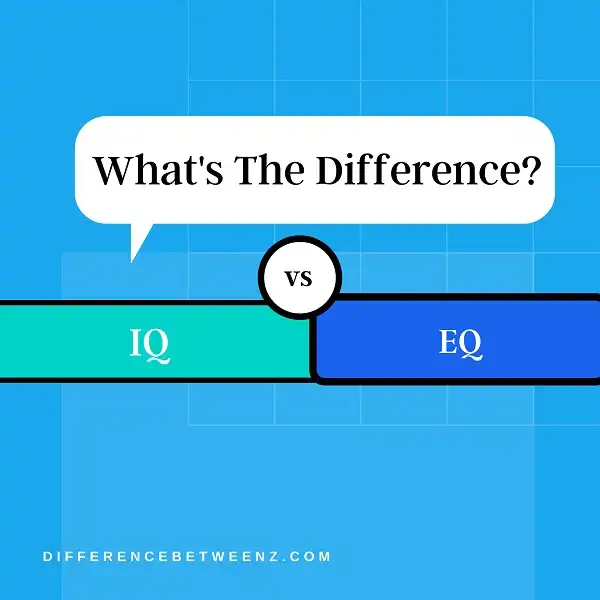IQ, or intelligence quotient, is a measure of cognitive ability as compared to the rest of the population. EQ, or emotional quotient, is a measure of emotional intelligence and self-awareness. Though both are important in different ways, IQ is often seen as more important because it is seen as a predictor of success in life. However, recent studies have shown that EQ may be more important than IQ when it comes to overall success. This is because EQ helps people relate to others and understand their emotions, which can be critical in fields such as sales or management. Therefore, it is important for people to not just focus on their IQ but also work on their EQ.
What is IQ?
IQ, or intelligence quotient, is a number assigned to individuals to measure their overall cognitive ability. This important metric is calculated based on an individual’s performance on IQ tests, which typically involve tasks such as logic problems, pattern recognition, vocabulary questions, and other types of mental exercises. While IQ can fluctuate from moment to moment depending on the subject matter being tested, most experts agree that it can also be relatively stable and resistant to change over time. Some evidence suggests that IQ may be influenced by a wide range of factors such as genetics, environment, education level, stress levels, and more. Overall, IQ is considered to be an important indicator of a person’s potential for success in both academic and professional settings.
What is EQ?
EQ, or emotional intelligence, is the ability to be aware of and understand your own emotions and the emotions of others. EQ is important in both personal and professional settings. Those with high EQ are typically able to relate to others, manage their own emotions, and resolve conflicts effectively. EQ can be beneficial in the workplace as it can help to build strong relationships, foster teamwork, and boost productivity. EQ is also useful in leadership roles as it can help leaders better understand and motivate their employees. While EQ is valuable in many different areas of life, it is especially important in the workplace. Those with strong EQ skills are often more successful in their careers and are better able to navigate the challenges of the modern workplace.
Difference between IQ and EQ
There is a common misconception that IQ and EQ are the same things, or that having a high IQ means that you necessarily have a high EQ as well. However, in reality, these two concepts are actually quite different. IQ refers to one’s innate cognitive abilities, or the ability to learn and solve problems based on logic and reasoning. By contrast, EQ refers to one’s emotional intelligence: the ability to perceive, understand, and manage emotions with empathy. Though there can be some overlap between these two qualities, they ultimately represent distinct and unique skillsets. In order to be successful in any field, it is important to have both a high IQ and a high EQ. This allows you to effectively navigate the complex social dynamics of the workplace, as well as embrace new ideas and strategies that may not come naturally to you. Whether you’re climbing the career ladder or starting your own business, having both an IQ and an EQ will help pave the way for success.
Conclusion
While IQ is a measure of cognitive ability, EQ measures emotional intelligence. These two concepts are related but distinct, and both are important in business and personal relationships. We’ve looked at the difference between IQ and EQ, now let’s explore why each one is important. First, having a high IQ can help you succeed in school or in your career. However, success in these areas doesn’t necessarily translate to being successful in other aspects of life. That’s where EQ comes into play. Emotional intelligence helps us navigate social situations and build better relationships. It also allows us to be more self-aware and understand our own emotions as well as the emotions of others.


